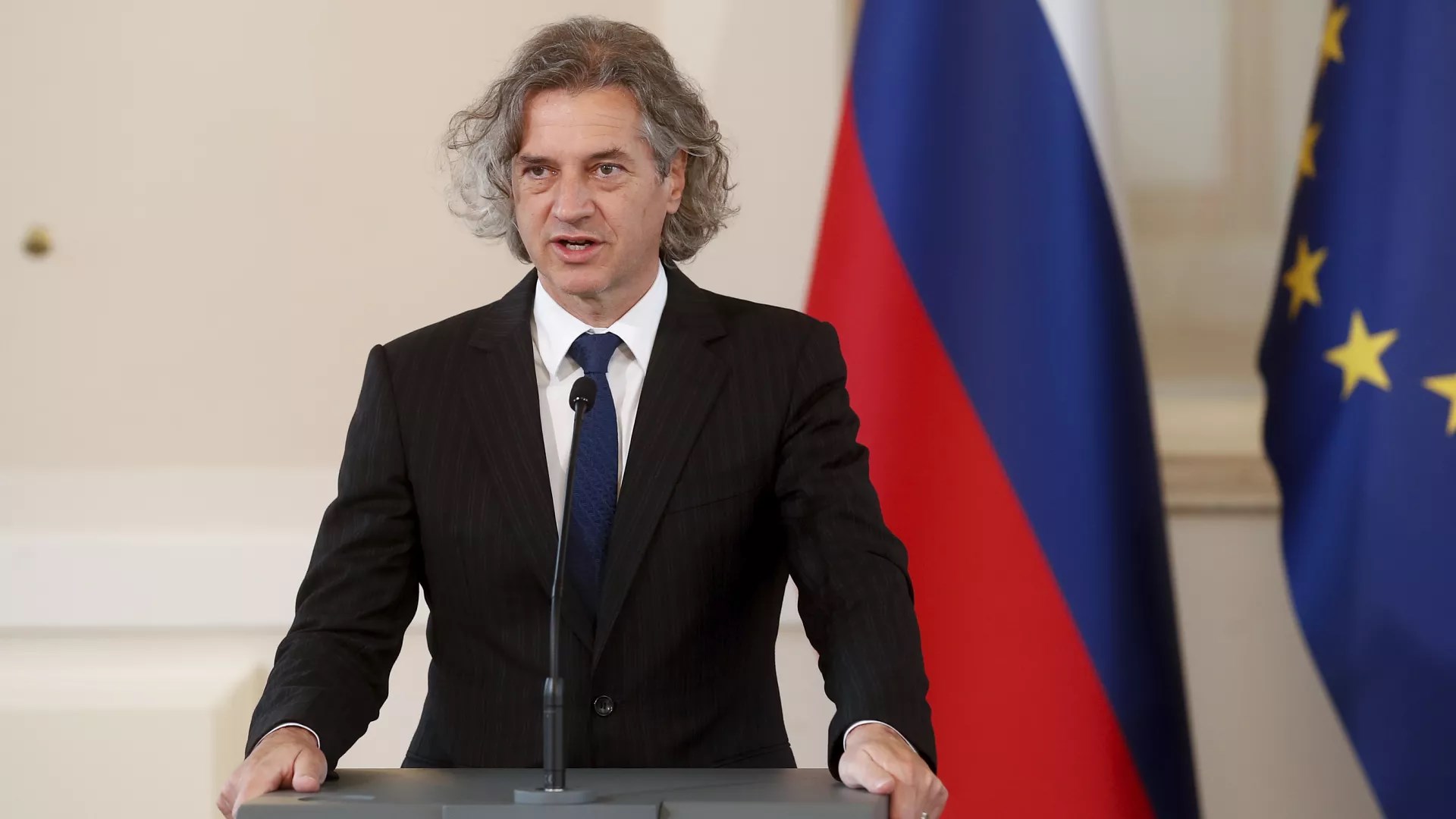Slovenia follows other nations' example, recognizes Palestinian state
Slovenia now awaits parliament's approval of the government's decision in the coming days.
-

Robert Golob speaks to reporters in Ljubljana in 2022 (AP)
Slovenia's government, led by Prime Minister Robert Golob, announced on Thursday its decision to recognize the sovereignty of an independent Palestinian state, aligning with the actions taken by Spain, Ireland, and Norway.
Golob made the announcement in a press conference in Ljubljana, stating, "Today, the government has opted to acknowledge Palestine as an independent and sovereign entity."
It is worth noting that the parliament of this European Union member state must also ratify the government's decision in the coming days.
The decision is part of a broader initiative among nations to collectively exert pressure on "Israel" to end its brutal aggression on Gaza.
Golob additionally urged for an immediate halt to hostilities in Gaza and the liberation of all captives, emphasizing, "This is a message of peace."
The Slovenian government hoisted a Palestinian flag alongside those of Slovenia and the EU outside its downtown Ljubljana premises.
This comes shortly after Norway's Prime Minister Jonas Gahr Store asserted, in an article for Politico, that Norway recognized the state of Palestine as it has a "fundamental, independent right to self-determination."
He reiterated his country's belief that this is necessary to contribute to peace in the Middle East. More importantly, Gahr listed five reasons why it is necessary to formally recognize Palestine today.
He said that first, the war on Gaza shows how achieving peace and stability is much needed and that it "has led to increasing unrest in the West Bank and growing tensions between the countries in the region," explaining that the regional situation "hasn’t been this grave in many years."
The big picture
On May 28, Spain, Ireland, and Norway officially recognized the state of Palestine.
That day, Spanish Prime Minister Pedro Sanchez said Spain is recognizing a Palestinian state, including the Gaza Strip and the occupied West Bank, under the Palestinian National Authority with "East Jerusalem as its capital."
Meanwhile, Ireland officially recognized the Palestinian state in Parliament, the government announced in a statement, saying, "The Government recognises Palestine as a sovereign and independent state and agreed to establish full diplomatic relations between Dublin and Ramallah."
On its part, Norway hailed its recognition as a "special day" for its relations with Palestinian authorities.
Read next: Norway FM says Israeli officials to be arrested if ICC issues warrants
"Israel" denounced the move as a "reward" for the Palestinian Resistance Hamas. In response to that, the European Union's foreign policy chief Josep Borrell expressed that recognizing a Palestinian state does not make it a "gift" to Hamas.
Dive Deeper
Most countries—approximately 139 in total—formally recognize a Palestinian state. On May 10, 143 out of 193 United Nations General Assembly members voted in favor of a Palestinian bid for full UN membership, a status that is available only to states. Currently, Palestine holds an enhanced observer status at the UN, which allows the country a seat but no voting rights in the assembly. Additionally, Palestine is recognized by various international organizations, including the Arab League and the Organisation of Islamic Cooperation.
A minority of European countries already recognize a Palestinian state. These include Hungary, Poland, Romania, the Czech Republic, Slovakia, and Bulgaria, which adopted this stance in 1988, as well as others like Sweden and Cyprus. However, many European nations and the United States have stated that they will recognize a Palestinian state only as part of a comprehensive political resolution to the Middle East struggle. This approach is often referred to as the "two-state solution".

 4 Min Read
4 Min Read








